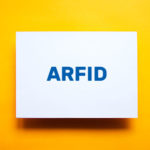Avoidant/Restrictive Food Intake Disorder (ARFID) is a complex eating disorder characterized by an individual’s persistent failure to meet appropriate nutritional and energy needs. Unlike other eating disorders, ARFID is not driven by body image concerns but can arise from a lack of interest in eating, avoidance due to sensory characteristics of food, or fear of aversive consequences like choking or vomiting. Treating ARFID is challenging, especially in children and adolescents. One promising approach is the Supportive Parenting for Anxious Childhood Emotions (SPACE) program. Developed by Dr. Eli Lebowitz at the Yale Child Study Center, SPACE is designed to help parents manage and reduce their children’s anxiety and related disorders, including ARFID.
Understanding SPACE
SPACE is a parent-based intervention that focuses on changing parental behaviors rather than directly treating the child. Your child DOES NOT need to want to attend therapy or be interested in changing. This makes the SPACE Treatment program ideal for families that have tried feeding therapy in the past and have been unsuccessful. The underlying principle is that by modifying the way parents respond to their child’s anxiety and avoidant behaviors, the child’s symptoms can be significantly reduced. SPACE helps parents learn to support their child’s capacity to handle anxiety independently and reduce accommodating behaviors that reinforce avoidance.
Core Components of SPACE
- Parental Accommodation:
- Definition: Parental accommodation refers to the adjustments parents make to help their child avoid distress. In the context of ARFID, this could mean preparing special meals, avoiding certain foods, or allowing the child to eat only their preferred foods.
- Impact: While accommodating behaviors are often well-intentioned, they can perpetuate the child’s avoidance and anxiety around eating. SPACE aims to reduce these accommodations gradually, encouraging children to face their fears and anxieties.
- Communication of Support and Confidence:
- Supportive Statements: Parents are trained to deliver messages of support and confidence, emphasizing their belief in the child’s ability to cope with anxiety and challenges related to eating.
- Positive Reinforcement: By consistently reinforcing the child’s efforts and small successes, parents help build the child’s self-efficacy and reduce anxiety.
- Creating a Plan:
- Step-by-Step Approach: SPACE involves developing a structured plan for reducing accommodations. This plan is tailored to the individual needs of the family and the specific behaviors that need to be addressed.
- Incremental Changes: Changes are introduced gradually to ensure that both the child and parents can adjust to the new expectations without becoming overwhelmed.
- Monitoring Progress: Regular check-ins are scheduled to monitor progress, address challenges, and adjust the plan as needed.
Benefits of SPACE for ARFID
- Empowerment of Parents: SPACE empowers parents by providing them with the tools and skills needed to effectively support their child’s progress.
- Reduction of Anxiety: By addressing the underlying anxiety and avoidance behaviors, SPACE helps reduce the overall level of distress experienced by the child.
- Improved Eating Habits: As accommodations are reduced, children gradually expand their diet and improve their nutritional intake.
- Long-Term Outcomes: SPACE fosters long-term resilience in children, equipping them with the ability to cope with anxiety and challenges beyond food-related issues.
- Children do not need to be invested in therapy or present at session.
Challenges and Considerations
While SPACE is a promising approach, it requires commitment and consistency from parents. Resistance to change, both from the child and parents, can be a significant barrier. Additionally, each child’s situation is unique, and SPACE may need to be adapted to meet individual needs. Collaboration with a trained therapist is crucial for successful implementation.
Conclusion
SPACE offers a novel, evidence based, and effective approach to treating ARFID by leveraging parental influence to reduce anxiety and avoidance behaviors. Through careful planning, skill development, and consistent support, SPACE helps children overcome their eating challenges and fosters long-term resilience. As awareness and understanding of ARFID continue to grow, interventions like SPACE provide hope and practical solutions for families navigating this complex disorder.
Kelly is an SLP and feeding specialist who is trained in the SPACE Treatment technique. She helps those in the Lake Nona area and beyond. She provides support to toddlers, teens, and young adults. Kelly is starting a NEW SPACE treatment hybrid group (3 group sessions with one-on-one follow ups) this September. Contact her at kelly@food4thoughttherapy.com to book your slot. Groups are limited to 6 families, so space is limited!


